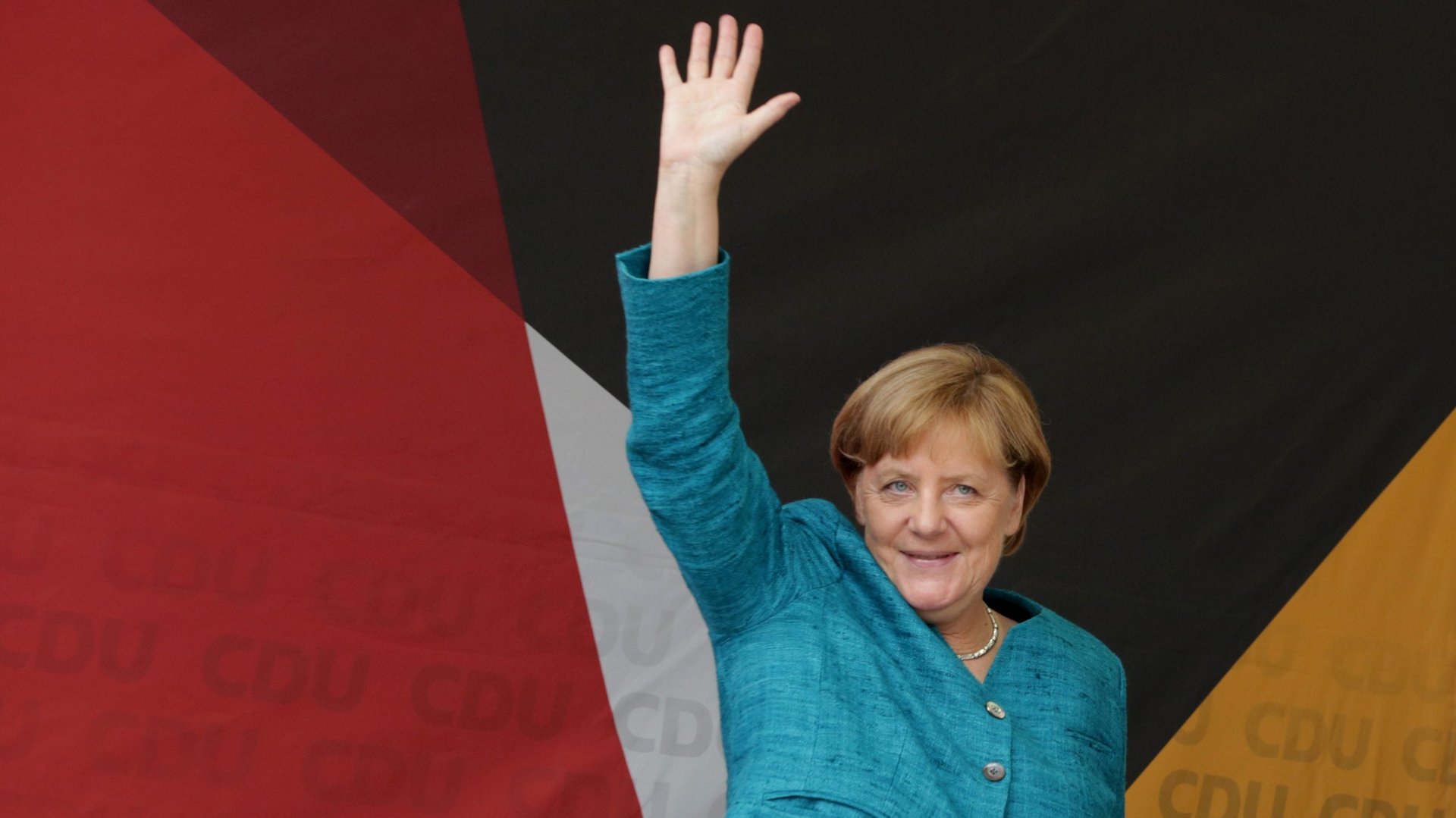German voters are playing coy before they make Merkel chancellor again
Next month’s federal election in Germany is widely expected to be an easy win for Angela Merkel, extending her time as the longest-serving government leader in the European Union. But a particularly indecisive electorate may make it less of a sure thing than it seems.


Next month’s federal election in Germany is widely expected to be an easy win for Angela Merkel, extending her time as the longest-serving government leader in the European Union. But a particularly indecisive electorate may make it less of a sure thing than it seems.
Nearly half of voters (46%) do not know who to vote for in the Sept. 24 election, according to a poll published in a local newspaper. This is reportedly the highest share of undecided voters this close to an election in the past 20 years.
The share of undecided voters in Germany is markedly higher than other high-profile votes recently: in the UK, around 25% of voters were undecided at a similar stage of the run-up to the June general election; in France, 43% were undecided a month before the first round of the presidential election in April; and in the US, only 15% of voters were undecided a few weeks before the November election.
Though nearly half of German voters are undecided, 45% of those surveyed think the outcome of the election is already set. The latest poll by the Allensbach Institute puts Merkel’s CDU/CSU at 39.5%, 15 points ahead of the second-ranked Social Democrats. After 12 years in power, the chancellor’s appeal among first-time voters, who have swung strongly for “change” candidates in other elections, is particularly strong; nearly half of 18-24 year olds say they will back the chancellor’s party at the ballot box next month.